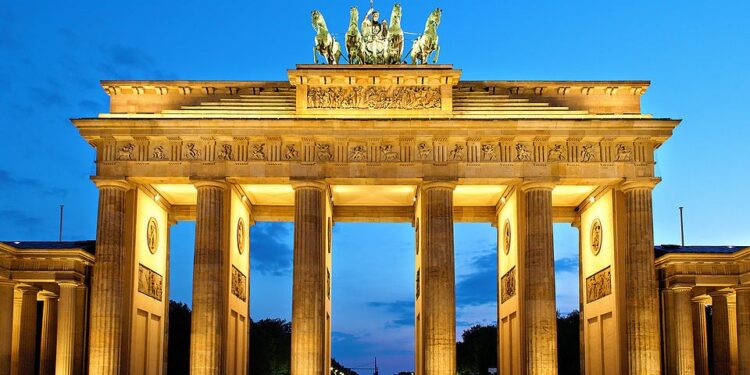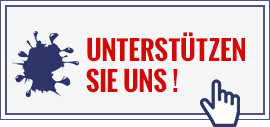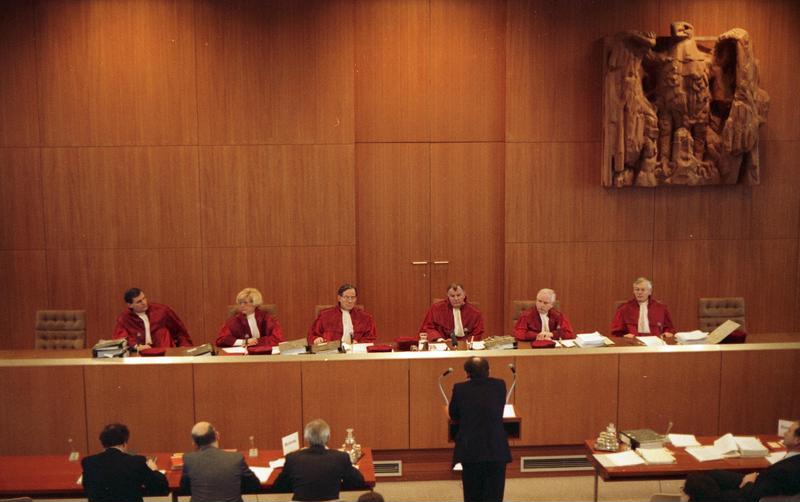In its latest issue, the news magazine “Der Spiegel” conducted a long interview with the historian Heinrich August Winkler(84), which I can only recommend to anyone who is interested in German history and the judgment of this great historical narrator, his multi-volume work “History of the West” graces my desk. At the end of the question and answer catalog led by editors Dirk Kurbjuweit and Klaus Wiegrefe, Winkler is asked the question: “Do you love Germany?” And the historian answers with the words of former Federal President Gustav Heinemann: “There are difficult fatherlands “, said the third president and the first from the ranks of the SPD in his inaugural speech in 1969. “One of them is Germany. But it is our fatherland.” How true. Winkler admits that this sounds a bit old-fashioned, but “I consider an enlightened, self-critical patriotism to be legitimate and necessary.” And wasn’t another social democrat who, to put it politely, not made things easy by Germany in the end? to have been a German patriot? Meant Willy Brandt.
To stay a little longer with Heinemann, the controversial and controversial democrat, it should be added that in another interview when asked whether he loved the Federal Republic, he replied: “Oh no, I don’t love states, I love my wife ; Done!” He saw himself as a citizen president, the lawyer from Essen, who was mayor of the city after the war, co-founder of the CDU and who was a member of Adenauer’s first cabinet as interior minister for a year, but who left the party in 1952 in protest against the CDU chancellor Rearmament plans. Heinemann was involved in the peace movement and was against the Federal Republic’s NATO membership out of concern that this would make reunification more difficult. Heinemann then founded the more pacifist GVP together with Erhard Eppler, Dieter Posser and Johannes Rau before switching to the SPD in 1957. Problems?
In 1966, Heinemann was a member of the Grand Coalition cabinet as Minister of Justice under CDU Chancellor Kurt-Georg Kiesinger, who had been a member of the NSDAP, and Vice Chancellor Willy Brandt, who had fled abroad to escape the Nazis. The grand coalition passed, among other things, the controversial emergency laws, against which the students took to the streets. In 1969, Heinemann was elected Federal President, which he described as “a bit of a change of power.” And as a high school student, this Heinemann had written a play that Berlin students played for him on his 72nd birthday: “I will never regret having spoken out about the truth and the law. Just use brute force to silence me! Law remains law! You will have to hear me before the judge’s seat that will one day challenge you.“ Germany, united fatherland?
Heinrich August Winkler, SPD member since 1961, because he condemned Adenauer’s campaign against the illegitimate child Herbert Frahm, alias Willy Brandt, expresses the hope in the interview „that Germany will not emerge from a serious crisis as a dictatorship again.“ Now can One cannot deny that the country, built on and from the ruins of the Nazi state, after the World War, the collapse of civilization, overcame crises, solved major problems, and the economic miracle made many things easier. Because other things were suppressed for a long time, like the Nazi era with the many millions of members of the brown dictatorship party. It was only the Auschwitz trials that brought much of this to light and to the table. Was the republic divided then? Torn? There were heated discussions, the Bundestag experienced debates that were later praised as political high offices. The country was doing well, the people enjoyed freedom and prosperity. At least those in the West and those in the East were harassed by the SED, the Stasi, and the Wall also kept them prisoners within its borders to the West. Perhaps this explains some of the need to catch up, which should not diminish the criticism of the West. After the fall of communism, it overran the East.
Solve migration together
Winkler sees the country’s current problems as being due to the strengthening of the AfD and recommends: “We have to be honest. We must not promise more than we can deliver. Western democracies are no longer able to accept all the people who are fleeing war and hardship.” In fact, migration is the problem from which the right-wing extremists live, without having any suggestions for solutions. They are trying to divide the country. Incitement against foreigners and refugees, paints on the wall that the republic is becoming increasingly alienated, raves about repopulation. Heinrich-August Winkler sees possible solutions. The prerequisite for the granting of citizenship must be the “unconditional recognition of fundamental rights, including the equality of men and women and freedom of religion. That alone sets limits to integration.”
Which brings us to the current situation with the Middle East problem. The attack on Israel by the terrorist organization Hamas, the brutal killing of children, women and the elderly, Israel’s response with planes, bombs and tanks, the debates in Germany about hatred of Jews, about the rights of Palestinians, protests with illegal excesses against Jewish women and Jews in Berlin, Essen and elsewhere. A few days ago, the Green Vice Chancellor and Economics Minister Robert Habeck emphasized in a widely watched video message that there was no place for religious intolerance in Germany. Anyone who lives here has to live according to the rules that apply here. Of course, this includes human dignity. And Habeck had also threatened punishment to those who rioted on the street against Israel and against Jews. And this also means Muslims as well as Germans who doubt Israel’s right to exist, which is part of Germany’s reason of state, and set Israeli flags on fire. This also meant the threat of expulsion.
Anti-Semitism is once again spreading in the country of the perpetrators, where there are voices that follow the Hamas lie and blame Israel solely for the military action in Gaza. That’s probably how the terrorists had planned it from the start, first to kill the Israeli settlers, which would then be covered up by Israeli retaliatory attacks. With the result that the last thing would get stuck. No, our country is not divided, the Democrats are united, their opponents, even their enemies, are protesting and trying to incite people against Jews. Fear is spreading through their ranks, just like it used to be. Who protects them?
There have been many political divisions, emphasizes Winkler. In rearmament, Willy Brandt’s Ostpolitik, to name just two. “But never before has liberal democracy been questioned by so many,” the historian notes. The question would be whether Germany is not doing well overall today, AfD or not, it sits in all parliaments, but this party still only has one or two district administrators and mayors, there is no sign of government participation and it will continue to be so The Democrats agree that this won’t happen either. Someone like the former Federal Finance Minister and former CSU boss, Theo Waigel, recently advised that the CDU and CSU should work together with the traffic light government to solve the problem of migration; he expressly did not mean a new coalition from the SPD and the CDU/CSU. Chancellor Scholz recently had this conversation with the leaders of the CDU, Merz, and the CSU regional group leader Dobrindt. Nothing was known about the content, but one can assume that migration could have been the dominant topic.
Huge problems, as almost every debate here is, give the impression that they are almost impossible to solve. One would like to remember Hans-Jochen Vogel, who reminded his party, the SPD, many years ago that the problems after the war were really hardly solvable, everything was broken, in rubble and ashes, morale was at the bottom, the country was divided . Later, when the Schröders ruled, the republic was clean, one might almost say squeaky clean. And yet there was criticism and complaining. Theo Waigel also recently reacted to the inflationary use of the term dilemma, which dominated much of the news. There had also been problems in the past, the CSU leader recalled his time as a minister. “There were 8,000 Soviet tanks in the territory of the former GDR.” The tensions at the time were “a huge danger” because “with the push of a button, West Germany would no longer be there. “If the problems of migration and the economy were solved together, “then the AfD and the far left would be deprived of their arguments.” The traffic light was heavily criticized by Waigel, saying that there was too much discussion, too little decision-making, too much consideration given to certain factions, and that people were afraid of surveys, of moods, instead of shaping the mood themselves.
The Parliamentary Council met in Bonn
The current debate also includes the discussion about asylum law. Winkler makes some interesting historical comments, starting with the individual right to asylum, which goes back to a decision in the Parliamentary Council, which drafted the Basic Law in Bonn in 1948. On September 23, 1948, the Committee for Fundamental Questions received a draft with the sentence: “Those who are politically persecuted enjoy the right to asylum within the framework of general international law.” At the request of the SPD MP Carlo Schmid, said Winkler in the Spiegel interview, the last five words were deleted for editorial reasons. The fathers and mothers of the Basic Law were not aware at the time that by deleting them they were establishing a right that does not exist in any Western democracy, “namely an individual, subjective right to asylum.” Rather, the founders of the Basic Law had the right to asylum wanted to enshrine a duty of the state not to send politically persecuted people back to persecuting states. Winkler: “Nothing more was intended.” But the reduction led to an interpretation of Article 16, “according to which there is a right of access to the territory of the Federal Republic.”
The world has changed. Politics must not freeze in hatred and anger. The Federal Republic has problems here and there. But there is no reason to talk badly about everything here. Anyone who does that is running the AfD’s business. Even if not everything works in the country, there are some things that need to be improved, such as the infrastructure, schools, roads, bridges and the railway. But society and politics solved the pandemic, the rule of law worked and continues to work. Nobody has to bring back democracy; rather, the Aiwangers have to be shown the limits. The dependence on Russian gas was solved in a very short time, no one had to freeze, the economy did not collapse. Germany has been helping Ukraine since Putin’s Russia invaded. The Chancellor travels the world to present Berlin’s calling card; he talks to governments on an equal footing and wants to gain or secure trust. Robert Habeck has just emphasized Germany’s responsibility towards Israel in his video, calmly and clearly, and some of his old admirers in the media have already said that the new Chancellor had spoken.
It’s true: Anyone who hears and watches the news on television in the evening is dragged from one crisis to the next, from the Ukraine to the Middle East war, and then there is an earthquake in Nepal and an armed man enters the airfield at Hamburg Airport . The correspondents of institutions all over the world paint the picture that sometimes robs us of sleep. And yet I have to say: This republic is the best we have ever had. We should say that more often.
















 Unser Blog lebt durch Sie!
Unser Blog lebt durch Sie!